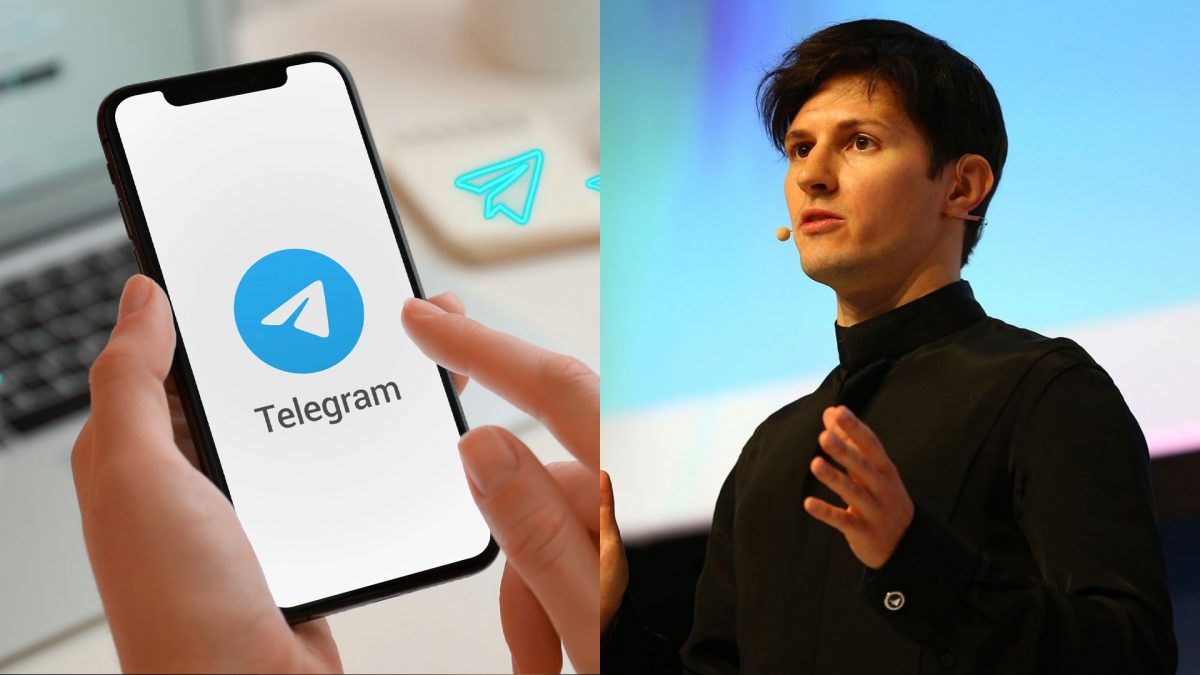Pavel Durov, who created Telegram with his brother Nikolai, has positioned the platform as a haven for those who value privacy and freedom. During an interview with American journalist Tucker Carlson, Durov emphasised that users are drawn to Telegram for these very reasons read more
)
Durov maintains that his mission with Telegram is not driven by financial gain. He has repeatedly emphasised that his primary goal is to promote freedom and provide a platform where users can express themselves without interference. Image Credit: Reuters, Pexels
Pavel Durov’s Telegram has emerged as the go-to communication tool among right-wing libertarians, gaining popularity for its commitment to user privacy and freedom of expression. Founded in 2013, Telegram has grown significantly, now claiming 950 million users, a substantial increase from 550 million in 2022.
While it has stayed relatively under the radar in the West, Telegram has a vast global user base and has played a significant role in various geopolitical events, particularly in the ongoing Ukraine conflict.
Telegram’s rise
Pavel Durov, who created Telegram with his brother Nikolai, has positioned the platform as a haven for those who value privacy and freedom. During an interview with American journalist Tucker Carlson, Durov emphasised that users are drawn to Telegram for these very reasons.
Unlike major US tech companies such as Meta and Google, which have been criticised for monetizing user data, Telegram has prided itself on not selling or handing over user information.
Telegram’s stance on privacy has made it especially appealing in regions like Russia and Ukraine, where some of its news channels have become more popular than traditional media outlets. However, this commitment to privacy has also attracted criticism.
The platform has faced backlash for its perceived failure to adequately moderate extreme content, raising concerns about the potential dangers of unchecked communication channels.
Despite these criticisms, Durov has remained steadfast in his belief that Telegram should not overly police its users, as long as they do not cross certain “red lines.” This approach aligns with his broader libertarian philosophy, which prioritises freedom of expression over strict regulation. However, with Telegram’s team consisting of only a few dozen employees, experts have questioned whether the platform can truly maintain a secure and well-moderated environment.
From Russia to the world
Pavel Durov first gained recognition in 2006 with the launch of VKontakte (VK), a social network often referred to as “Russia’s Facebook.” VK quickly gained millions of users and caught the attention of the Kremlin, leading to increased pressure on Durov to comply with government demands. He resisted calls from Russian security services to provide information on opposition groups and later faced significant pressure to hand over data on pro-European activists in Ukraine.
These experiences shaped Durov’s decision to create Telegram, a platform designed to protect user privacy against government intrusion. In 2014, Durov sold his stake in VK and left Russia, eventually relocating to Dubai in 2017. By distancing himself from more stringent regulatory environments in the European Union and the United States, Durov has been able to maintain greater control over Telegram’s operations.
Durov’s global mobility is underscored by his multiple citizenships, including one from the Caribbean island of Saint Kitts and Nevis and another from France, which he acquired in 2021. His ability to navigate different legal and political environments has allowed Telegram to operate relatively freely, even as it faces challenges from various governments.
A struggle-riddled past
Telegram’s commitment to privacy and minimal content moderation has led to legal challenges in several countries. French prosecutors have accused the platform of failing to curb illegal activities, including fraud, drug trafficking, organised crime, and cyberbullying.
Similar accusations have been made by other nations, with Iran accusing Telegram of hosting violent opposition groups in 2018 and Russia blocking the platform after it refused to provide encryption keys. More recently, Brazil and Spain have taken action against Telegram for failing to comply with requests for data and addressing intellectual property violations, respectively.
Despite its widespread use, Telegram has struggled to turn a profit. The platform was initially funded entirely by Durov until 2018, when it raised $1.7 billion to launch its own cryptocurrency. However, the project collapsed after US regulators refused to approve it, leading to the company reimbursing most of the investment.
Telegram began running ads in 2021, insisting that it would not use users’ private data for targeting and introduced a premium subscription model in 2022. Although the company is now generating hundreds of millions in revenue, it has yet to achieve profitability.
Durov, however, maintains that his mission with Telegram is not driven by financial gain. He has repeatedly emphasised that his primary goal is to promote freedom and provide a platform where users can express themselves without undue interference. As Telegram continues to grow, its commitment to these principles will likely remain at the core of its identity, even as it faces ongoing challenges in the rapidly evolving digital landscape.

 3 weeks ago
4
3 weeks ago
4
)
)
)
)
)
)
)
)
)
)
)
)
)
)
)
)
)
)
)
)
)
)
)
)
 English (US) ·
English (US) ·